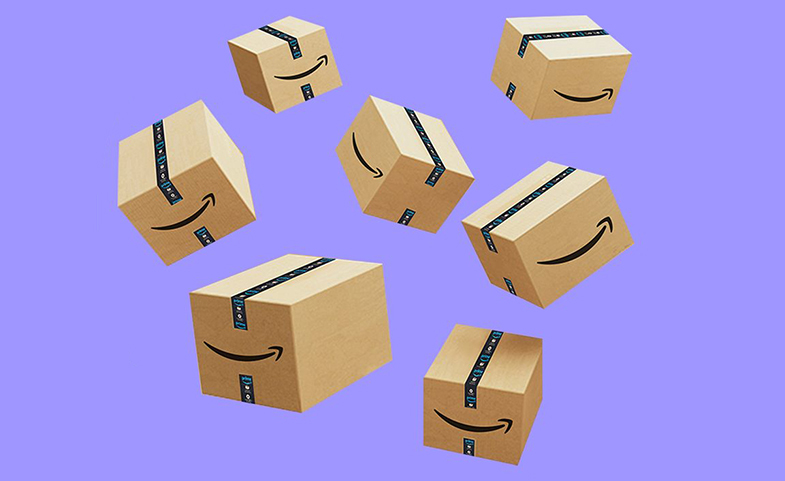Introduction:
In the vast landscape of e-commerce, Amazon stands as a giant, connecting buyers and sellers across the globe. While many are familiar with Amazon's retail platform, the inner workings of its wholesale operations might be less clear. Wholesale, a practice involving the bulk purchase of branded products for resale, forms the backbone of Amazon Wholesale—a program meticulously crafted to cater to businesses seeking to source products in volume.
What is Amazon Wholesale?
Amazon Wholesale is a program designed to facilitate bulk purchasing for businesses looking to source products for resale. Diverging from the individual-centric retail model, Amazon Wholesale establishes partnerships with manufacturers, distributors, and large brands—transforming them into wholesale vendors. These vendors supply products in bulk to Amazon, which then assumes the role of the official seller for these items.
How does the Amazon Wholesale Program work?
Wholesale Vendor Relationship:
- Amazon establishes partnerships with manufacturers, distributors, and large brands. These entities become wholesale vendors.
- Wholesale vendors supply their products in bulk to Amazon, which then becomes the seller of record for these items.
Product Listing and Management:
- Amazon creates product listings for the wholesale items it receives from vendors.
- The wholesale items are integrated into the broader Amazon catalog, making them visible to business customers who have access to the wholesale platform.
Business Customer Access:
- Businesses and resellers who qualify for Amazon Business accounts gain access to the wholesale platform.
- Amazon Business accounts offer features tailored to the needs of business customers, such as bulk pricing, quantity discounts, and business-only selection.
Bulk Purchasing on Amazon and Ordering:
- Business customers can place bulk orders for products directly through the Amazon Wholesale platform.
- Orders are typically larger than those made by individual consumers, reflecting the wholesale nature of the transactions.
Shipping and Logistics:
- Amazon handles the logistics of shipping bulk orders from its warehouses to the business customers.
- The Fulfillment by Amazon (FBA) service may be utilized, allowing businesses to leverage Amazon's vast fulfillment network.
Payment and Terms:
- Payment terms and conditions are negotiated between Amazon and the wholesale vendors.
- Business customers typically enjoy favorable payment terms, and they may have access to lines of credit based on their business relationship with Amazon.
How to Kickstart Your Wholesale Journey on Amazon
1. Set Up Your Amazon Seller Account:
- Register on Amazon's seller platform, choosing between an Individual or Professional account.
- A Professional account is best for high-volume businesses, costing $39.99 per month, offering marketing tools, Buy Box eligibility, and listing customization.
- Individual accounts suit low-volume sellers but charge $0.99 per item sold, plus other fees.
2. Identify Profitable Products:
- Strategize your bulk purchases by avoiding sold-by-Amazon or private label products.
- Steer clear of highly competitive items and opt for branded products with promising margins.
- Choose products with positive customer reviews and avoid items that are fragile, bulky, perishable, or too heavy to ship.
- Stay away from seasonal and restricted products like Halloween decorations or alcohol.
- Utilize Amazon's FBA revenue calculator to estimate monthly sales and revenue for potential products.
3. Connect with a Wholesaler:
- Find a reputable wholesaler by checking associations like the National Association of Wholesalers-Distributors (NAW) and business report websites like BBB.
- Ensure the wholesaler's reputation is solid and matches your business needs.
- Confirm the minimum order quantity (MOQ) aligns with your business scale.
4. Initiate Contact with Wholesalers:
- Introduce yourself and your business professionally.
- Inquire about the minimum order quantity (MOQ) and request a price list or catalog.
5. Efficiently Fulfill Orders:
- Once orders start coming in, prioritize quick and efficient fulfillment to enhance customer satisfaction.
- Choose between Fulfillment by Amazon (FBA) or Fulfillment by Merchant (FBM).
- FBA involves shipping products to an Amazon fulfillment center for them to handle packaging, shipping, and customer service. It can be pricier but more convenient.
- FBM requires you to manage packaging, shipping, and customer service yourself, suitable for those starting with a smaller budget.
Pros and Cons of Amazon Wholesaling
PROS:
High Demand Products:
- Selling items already popular on Amazon means you tap into existing customer demand, making it easier to turn a profit without extensive marketing efforts.
Profitable Margins:
- Wholesaling generally provides better profit margins compared to other selling models. You buy products at lower prices and resell them closer to their retail price, sometimes even at a premium during high-demand periods.
Scalability:
- As you build relationships with manufacturers and distributors, the wholesale model becomes highly scalable. Growing your business allows you to place larger orders, resulting in higher profits.
CONS:
Upfront Investment:
- Wholesaling demands a substantial upfront investment because you're buying larger quantities of products in bulk. This can be a barrier for those with limited capital.
Intense Competition:
- The wholesale market, especially on Amazon, is competitive with numerous sellers vying for deals from manufacturers and distributors. Standing out requires strategic approaches.
Time-Consuming Outreach:
- Contacting manufacturers for wholesale opportunities is a time-intensive process. Extensive research, reaching out to multiple manufacturers, and persistent follow-ups are necessary to find the right partnerships.
Conclusion:
In the dynamic landscape of e-commerce, Amazon Wholesale emerges as a vital cog, seamlessly connecting businesses with wholesale vendors. By delving into the intricacies of Amazon Wholesale, businesses can harness the platform's vast product array, competitive pricing, and streamlined supply chain operations. As Amazon evolves, its wholesale model continues to play a pivotal role, contributing to the platform's sustained success. Navigate the Amazon Wholesale landscape with confidence, and unlock the full potential of bulk purchasing for your business.


